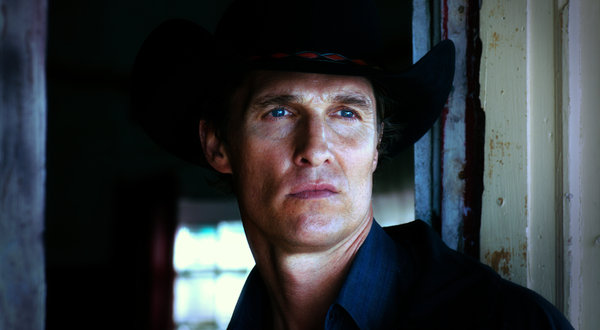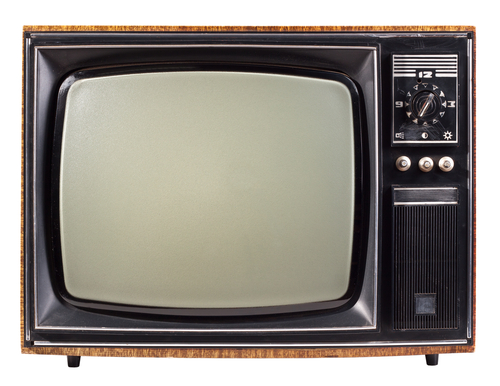It says something about William Friedkin’s big-screen adaptation of the Tracy Letts play “Killer Joe” that the title psycho, played byMatthew McConaughey, is, by a long Texas mile, its least objectionable character. Dressed in nearly all black from cowboy hat to boot, with a miserly smile and a dead man’s empty eyes, Joe Cooper, a k a Killer Joe, looks sharp, talks smart. As given demented life by Mr. McConaughey, he is a welcome presence among a collection of nitwits so irremediably disposable that they’re as evanescent as drops of water on a hot wood stove. These are people, the filmmakers suggest, who by their deep-fried stupidity and avarice deserve to fade quickly.
|
Meet the Murderer, the Best of a Bad Lot
Posted on: 08/06/12
Killer Joe, Directed by William Friedkin
 Matthew McConaughey in "Killer Joe." By MANOHLA DARGISPublished: July 26, 2012Not fast enough, it turns out. The bad times begin with Chris (a miscast Emile Hirsch), a gambler who tries to pay off his debts by having his mother killed for an insurance jackpot. He’s the story’s first idiot. He shares his plan with its second, his father, Ansel (Thomas Haden Church, good), a mechanic, and suddenly it’s a family affair. Ansel’s new wife, Sharla (Gina Gershon, working hard in a wretched role), learns about the scheme, as does Chris’s virginal sister, Dottie (Juno Temple, also miscast), aDaisy Mae type in cutoffs without any baby doll appeal. Together they scheme and scream, biding and wasting time in a trailer park where a barking pit bull and a blaring television add to the art-directed squalor. Chris hires his hit man, Joe, and discovers that he’s signed on with the devil. Here, as in other movies that use violence to jolt up the dreary proceedings, Chris and his problem turn out to be the warm-up act for Killer Joe. And Mr. McConaughey’s magnetic murderer is definitely the main attraction. He dominates his every scene with a hushed voice that carries a threat and a tensed, restrained physicality that suggests a rattler before it strikes. He’s a queasily compelling nut job reminiscent of the one in Jim Thompson’s pulp classic, “The Killer Inside Me,” and because Joe has the best lines, a mysterious back story and is played by a real star, the movie needs his juice badly. The other characters are merely supporting players, and so too are the actors wrangling the roles. Of these Mr. Church, buoyed by his comic deadpan and inherently funny slurry, whiny intonation, comes off the best. Mr. Hirsch puts energy or at least twitching into his performance, but the character is such a one-dimensional contrivance, a means to a dramaturgical end, that it’s hard to see any actor making it work. Both Ms. Temple and Ms. Gershon bring out the worst in Mr. Friedkin as a director. He lingers over their naked bodies for no narrative reason (however dubious her role, Ms. Temple doesn’t look like a little lost girl), and takes such a creepily intimate approach to Sharla’s and Dottie’s violent degradation that you might think he enjoys it. Mr. Friedkin, a director with a talent for kinetic screen violence, never finds his groove with “Killer Joe,” which lurches from realism to corn-pone absurdism and exploitation-cinema surrealism. Such lurching isn’t necessarily bad and could have proved entertaining. Yet, as with his embarrassing ogling of Ms. Juno/Dottie and the relish with which he stages a scene of Sharla being viciously beaten, it feels as if Mr. Friedkin is consistently controlled by the story’s excesses rather than in control of them. Mr. Letts’s play is usually called a black comedy (you wouldn’t know it from his screenplay), and that clarifies why it’s a bad fit for the ever-serious Mr. Friedkin, whose idea of funny here is immolating a corpse under a restaurant sign reading, “Billy’s Mo’ BBQ.” The last time that Mr. Friedkin and Mr. Letts teamed up was for “Bug,” a funny/unfunny 2007 freak show in which Ashley Judd and Michael Shannon play kooks who descend into madness. With its wall-to-wall chattering and screaming, and a fiery deus ex machina, “Bug” sounds like the stage play it is. But its structure — mostly two characters in one space — forced Mr. Friedkin to maintain a tight focus. “Killer Joe,” with its stereotypes spread across twice as many characters and hollow gestures toward a social context, is an even blunter, more self-indulgent exercise in excess. That may be why Mr. Friedkin cranks the volume at every opportunity, as a diversionary tactic for a story featuring a family of white-trash clichés and the murderer cum preacher who’s there to bring the peace. “Killer Joe” is rated NC-17 (No one 17 and under admitted). The movie has graphic bloody violence, including a brutal scene of sexual violation; it also has a sex scene with a clothed man and a naked, much younger woman. Killer Joe Opens on Friday in Manhattan. Directed by William Friedkin; written by Tracy Letts, based on his play; director of photography, Caleb Deschanel; edited by Darrin Navarro; music by Tyler Bates; production design by Franco-Giacomo Carbone; costumes by Peggy Schnitzer; produced by Nicolas Chartier and Scott Einbinder; released by LD Entertainment. Running time: 1 hour 43 minutes. WITH: Matthew McConaughey (Killer Joe Cooper), Emile Hirsch (Chris Smith), Gina Gershon (Sharla Smith), Juno Temple (Dottie Smith) and Thomas Haden Church (Ansel Smith). COMMENTS
Be the first to post a comment! Post A Comment:

|
.gif)



.jpg)

